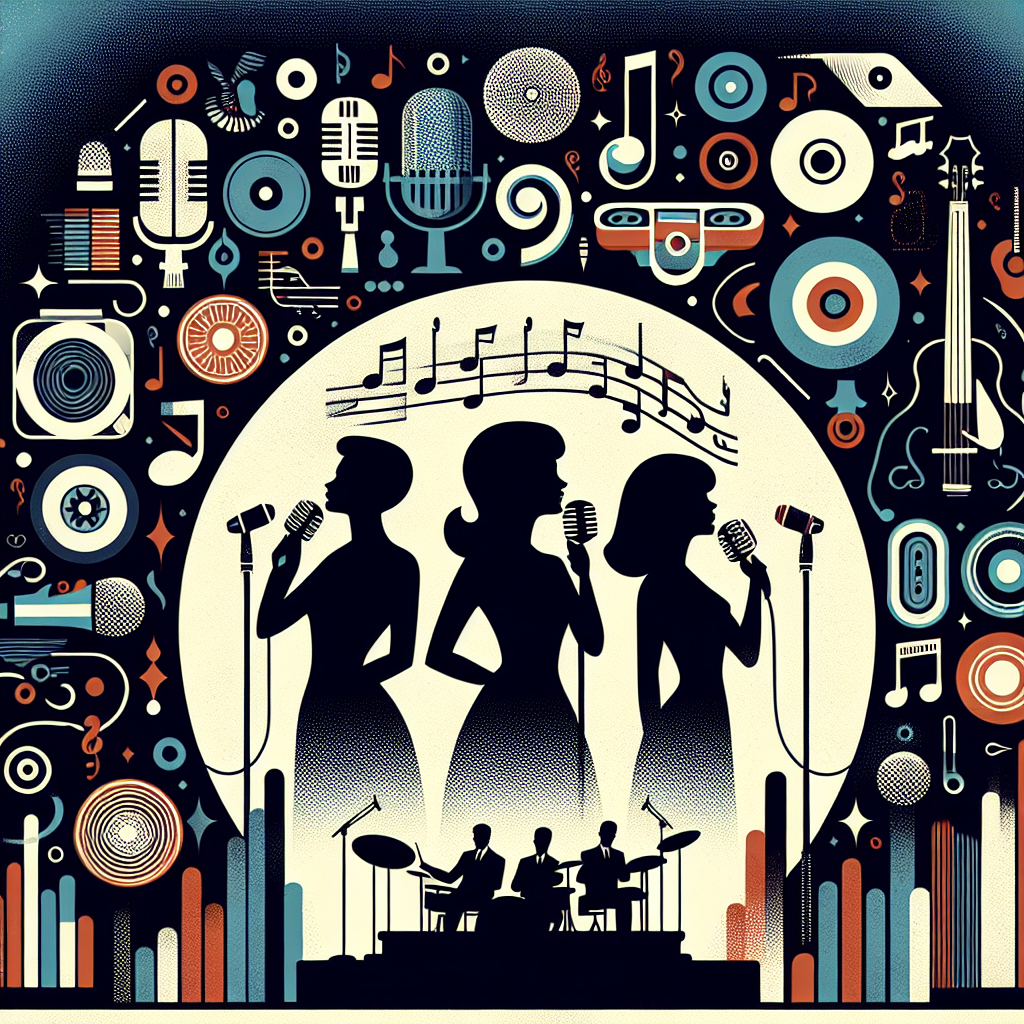The Supremes, one of the most celebrated all-female vocal groups in history, hold a legendary status in the world of Motown and beyond. Their song "Baby Love" is a quintessential classic that exemplifies their impact on the music industry and pop culture. The compilation "Unlock Nostalgia: The Supremes’ Timeless Classic – Baby Love Awaits You!" shines a spotlight on these soulful melodies, capturing emotions that echo across generations. In this analysis, we’ll explore the significance of this music within its genre, delve into its themes and lyrics, examine the musical techniques that create its impact, and discuss its cultural, social, and historical influence.
The Supremes and the Motown Sound
Formed in Detroit in 1959, The Supremes were a defining force behind the Motown sound—a fusion of pop, soul, and R&B characterized by catchy melodies, sophisticated arrangements, and polished production. By the mid-1960s, with hits such as "Where Did Our Love Go," "You Can’t Hurry Love," and "Stop! In the Name of Love," The Supremes became the first Motown act to see widespread mainstream success. "Baby Love," released in 1964, became one of their most iconic singles, reaching number one on the Billboard Hot 100 chart.
Significance of "Baby Love"
"Baby Love" was more than just a commercial success; it was a cultural phenomenon that encapsulated the sound and spirit of its time. The song helped solidify Motown’s reputation as a powerhouse in the music industry and represented the burgeoning influence of African American artists in mainstream American music. The track is pivotal in showing how music could transcend racial barriers, influencing both popular culture and the broader social landscape.
Themes and Lyrical Content
"Baby Love," written and produced by the legendary Motown team Holland-Dozier-Holland, conveys themes of longing, love, and heartache. The lyrics describe a deep yearning to regain a lost affection, resonating with anyone who has experienced the pangs of a romantic relationship on the brink of collapse. Lines such as "Don’t throw our love away" capture a desperate plea for reconciliation, evoking emotions that are universally relatable.
The song’s simplicity is part of its brilliance. With memorable hooks and straightforward language, it appeals to a broad audience. This accessibility is a hallmark of the Motown sound, making complex emotions understandable and engaging for listeners.
Musical Techniques
The Supremes’ music is characterized by its meticulous arrangement and infectious rhythm. "Baby Love" exemplifies the Motown production formula, blending soulful vocals with vibrant instrumentation. Key elements include:
-
Instrumentation: The use of traditional pop instruments like strings, brass, and keyboards is prominent. The bass line, in particular, provides a rhythmic foundation that drives the song forward. The sound of the tambourine on beats two and four gives the music a distinct bounce, hallmarking the Motown danceability.
-
Vocal Harmonies: Diana Ross’s lead vocals are complemented by the harmonies of Mary Wilson and Florence Ballard, creating a rich, layered sound that enhances the emotional depth of the song.
- Production Techniques: The clear, polished production typical of Motown allowed for maximum radio impact. "Baby Love" was recorded with a wall-of-sound technique—echo and layering that gave the song its powerful and enduring sound.
The combination of these techniques resulted in a track that resonated widely, supported by Motown’s innovative distribution strategies that positioned the song for global reach.
Cultural, Social, and Historical Context
During the 1960s, America was undergoing significant social changes. The Civil Rights Movement was at its peak, challenging racial segregation and discrimination. Music became a refuge and a catalyst for change, with Motown playing a key role in bridging cultural divides.
"Baby Love" and other Supremes hits were part of this transformation, providing a soundtrack to the era’s progress. The Supremes not only appealed to Black audiences but also captivated white listeners, helping to blur racial lines at a time when America was grappling with significant social upheaval. Their appearance on television shows such as "The Ed Sullivan Show" further exemplified their crossover success and symbolized a new era of racial inclusiveness.
Legacy and Lasting Influence
The legacy of The Supremes, and "Baby Love" in particular, extends far beyond its initial success. The song has been covered by numerous artists, demonstrating its timeless appeal and influence over generations of musicians. It played a part in shaping the sounds of future artists across genres, from pop and R&B to soul and beyond.
The Supremes’ influence paved the way for future African American artists and female groups in the music industry, inspiring generations to come. They proved that talent and tenacity could overcome societal barriers, setting a precedent for equality and representation in popular music.
Reflective Questions and Takeaways
"Baby Love" remains relevant today, a symbol of timeless artistry that still captures the hearts of listeners. As we reflect on this classic, consider:
- How does "Baby Love" continue to resonate with contemporary audiences? What makes its themes and sound enduringly appealing?
- In what ways did The Supremes challenge societal norms of their time, and how can their journey inform artists’ struggles for representation today?
- How can music continue to serve as a bridge across cultural and social divides in today’s increasingly polarized world?
In conclusion, "Unlock Nostalgia: The Supremes’ Timeless Classic – Baby Love Awaits You!" invites us to revisit the past with fresh appreciation. As we engage with this iconic music, we are reminded of the enduring power of song to connect us across time and circumstance, resonating with an ever-evolving world. The Supremes’ legacy serves as a testament to the power of music as a universal language capable of uniting and inspiring all who listen.
Got more questions? Our personalized Music Explorer AI assistant is here to help. Click here to start a conversation!
[Advertisement]
Curious about the deeper messages in your favorite songs? Discover how ANY track relates to positive biblical principles with Music and Scripture GPT from BGodInspired.com. Click here to uncover insights you might not have noticed!
[Advertisement]

